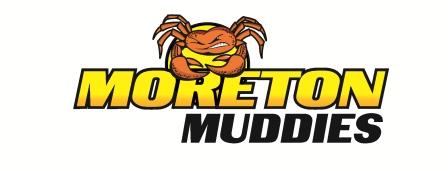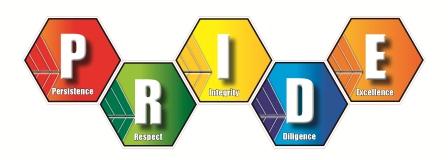Caboolture State High School offers a range of educational pathways in the Junior Secondary School. Students in Years 7, 8 and 9 will combine to form the Junior Secondary community at Caboolture SHS.
The Junior Secondary school works hard to offer a range of subjects that will engage, stimulate, provide opportunities to discover new knowledge and skills, and ultimately provide a broad base of experiences that will lead to a distillation of students’ subject choice in their areas of interest and expertise as they progress from years 7 to 10.
To find out what subjects are on offer in 2026, please click on the link below.
Our Year 10 subject selections are designed to prepare students for what they might experience in Years 11 and 12. They are designed to further refine students’ interests as well as prepare students for the different learning pathways offered in senior schooling, whether it be an ATAR/university pathway or vocational courses and work.
Students have the opportunity to study subjects from all Key Learning Areas across Years 7 to 9. Students are encouraged to choose subjects across as many curriculum areas as possible as they transition from year to year. The school curriculum is flexible, maximises options for the future and addresses individual student needs. At Caboolture SHS, we provide a balanced education that gives students the opportunity to study across both academic and practical areas, whilst ensuring that choices are not restricted for subsequent years.
Students will study six subjects each semester – a combination of Core and Elective subjects. Students will complete three lessons (70 mins each) a week for each of their respective timetabled subjects.
YEAR 7

Core subjects studied for the full year are English, Mathematics, HPE and Humanities. Core subjects studied for a semester each are Science and Agriculture.
Students will select TWO elective subjects for the year from a number of elective options across three faculty areas, with an elective subject to be completed each semester.
Electives are chosen from The Arts (Dance/Drama/Music/Visual Arts), The Technologies (Business, Digital, Food, Industrial Materials) and Languages (Auslan, Kabi Kabi)
Note: A student must select the two elective subjects from different faculty areas.
YEAR 8

Core subjects studied for the full year are English, Mathematics and Science. Core subjects studied for a semester each are Humanities and HPE.
Students will select TWO elective subjects for the year from a number of elective options across three faculty areas, with each elective subject to be completed for the full year.
Electives are chosen from The Arts (Dance/Drama/Music/Visual Arts), The Technologies (Agriculture, Industrial Materials, Food, Business and Digital), Languages (Auslan, Kabi Kabi) and HPE (Rugby League Academy – application only)
Note: A student can select two elective subjects from the same faculty area.
YEAR 9

Core subjects studied for the full year are English, Mathematics and Science.
Core subjects studied for a semester each are Humanities (History) and HPE.
Students will select TWO elective subjects for the year from a number of elective options across three faculty areas, with each elective subject to be completed for the full year.
Electives are chosen from The Arts (Dance/Drama/Music/Visual Arts), The Technologies (Agriculture, Business, Digital, Food, Industrial Materials), Humanities (Geography) and Languages (Auslan, Kabi Kabi)
Note: A student can select two elective subjects from the same faculty area.
Subject selections for each year level are completed through an online (OneSchool) and paper based subject selection process. Parent/Guardians are required to sign all subject selection forms and also request to change subject forms if needed.
NB: Subject offerings and time allocation is subject to change dependent upon staffing, facilities and identified student needs.
Guiding Principles
Education Queensland has provided all state schools with six guiding principles to help during the planning and preparation stages of the transition. These include: distinct identity, quality teaching, student wellbeing, parent and community involvement, leadership and local decision making.
Distinct identity
Through the implementation of house groups, staff help to create a strong sense of belonging for their students through developing relationships with a specific group of students that continues from Year 7 through to Year 12.




Core teaching teams are established where teachers may be paired to two core areas such as Math and Science or English and SOSE; thus reducing the number of teachers for each student.
A designated physical space has been established called the Junior Secondary Precinct, which helps students feel safe and have a sense of belonging.
A clear identity for our Junior Secondary students has been created through the new look Junior Secondary uniform that helps to visually separate our Junior Secondary students to the Senior Secondary students.
Quality teaching
In the Junior Secondary school, The Art and Science of Teaching pedagogy is implemented as it provides teaching strategies that are evidence-based and suited to adolescents.
With staff practicing the Art and Science of Teaching in their classrooms, we have a consistent approach when it comes to establishing routines, following rules and procedures.
 Teachers also create learning environments that reflect our school values:
Teachers also create learning environments that reflect our school values:
Student wellbeing
Peer support and mentoring programs, such as the Triple S Leaders (Seniors Support Sevens), support our students' well-being and transition needs.
Students are also supported by house group teachers who have the responsibility of mentoring and providing pastoral care for their subset of students within the broader group. This involves establishing a safe, supportive, caring and inclusive school community that fosters school connectedness and encourages a healthy lifestyle, including good nutrition and exercise.
Students are offered a range of extra-curricular opportunities as these programs are important in providing a sense of meaning and purpose through peer support, participation and working together as a group.
Parent and community involvement
Caboolture State High School encourages parents to stay connected to their children’s learning throughout secondary school. Parents are invited to:
Come into school to participate in twilight sessions.
Where possible, accompany their child to school events and functions.
Help with learning at home.
Be involved in school life by supporting the Parents and Citizens Association.
Leadership
Caboolture State High School supports our Junior Secondary students by giving them an opportunity to take on new challenges, build self-esteem and mentor other students through leadership.
The Junior Secondary leadership team, consisting of our Year 9 students, are appointed to lead the junior school. The leadership team includes two Junior Secondary Captains, two Junior Secondary Vice Captains, and two House Captains for each of the four house teams.
The leaders in our junior school help to organise key events throughout the year including student forums, carnivals and formal assemblies. This provides our students with the opportunity to influence, motivate and serve the needs of their peers.
Local decision making
Caboolture State High School nurtures strong relationships with the community by providing parents with opportunities for involvement in school events and school-based decision making. Opportunities are also provided for student involvement in decision making during the student forums run by our Junior Secondary Captains.